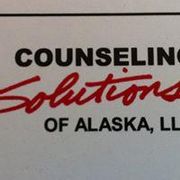An Introduction to Adoption Therapy

Adopting a child is enormously rewarding, but the experience isn't always free from challenges. Children with a history of trauma may have difficulty coping with their new reality. At the same time, adoptive families may wish to learn more about how they can help their child cope and develop strategies to improve both their parenting techniques and the living environment. Undergoing adoption counseling with a qualified therapist can be life-changing for everyone involved. Here's what you need to know.
Who Benefits from Adoption Therapy?
Anyone personally involved in the adoption, including the adoptee, the adoptive family, and the person’s birth family, can benefit from adoption counseling. Participants may attend sessions on their own or with one another. Sometimes, adopted individuals feel more comfortable speaking with a trusted therapist in privacy.
A professional can help children who have experienced abuse, neglect, bullying, unsafe environments, domestic violence, or lived in a foster home prior to the adoption. There are many variables that can make the initial adjustment period difficult for parents as well, and a therapist is a valuable ally and tool as the new family gels together.
What Are the Advantages of This Therapy?

Adoptees who struggle to communicate with their families may glean significant benefits from talking to a therapist. At the same time, both biological and adoptive parents may find it helpful to discuss their feelings and cope with new or underlying emotions that disrupt their everyday routine.
For example, undergoing therapy can lead to certain breakthroughs that help those who adopt incorporate more successful parenting strategies. When approaching situations through the child's lens and by discussing concerns, they will feel better equipped for the future.
When Is a Good Time to Seek Counseling?
If an adopted child of any age expresses feelings of anxiety, grief, depression, or other emotional distress, it’s valuable to seek the help of a therapist. Many children have unresolved trauma that grows. By discussing it in an open and safe environment where they feel comfortable, they’ll have a chance to develop helpful coping skills. Once adulthood is reached, it's possible for many who never had access to therapy to find that these old traumas are still impacting daily life.
Biological parents may seek counseling if they feel uncertain about the choice they made or carry guilt or grief. Adoptive families who feel their child needs help settling into the home or who have disruptive emotions about the adoption should also see someone. Whether from a parenting perspective or through the lens of difficult trauma, by addressing these feelings promptly, everyone involved has a better chance of emerging stronger and more resilient.
If you’re an adoptee, an adoptive parent, or a biological parent, you may benefit from adoption therapy. Turn to the caring and compassionate professionals at Counseling Solutions of Alaska. This staff offers a range of solutions to help with everything from strengthening communication skills to handling anxiety. Visit the website for more information or call the Anchorage, AK, office at (907) 644-8044 to schedule an appointment.
About the Business
Have a question? Ask the experts!
Send your question

